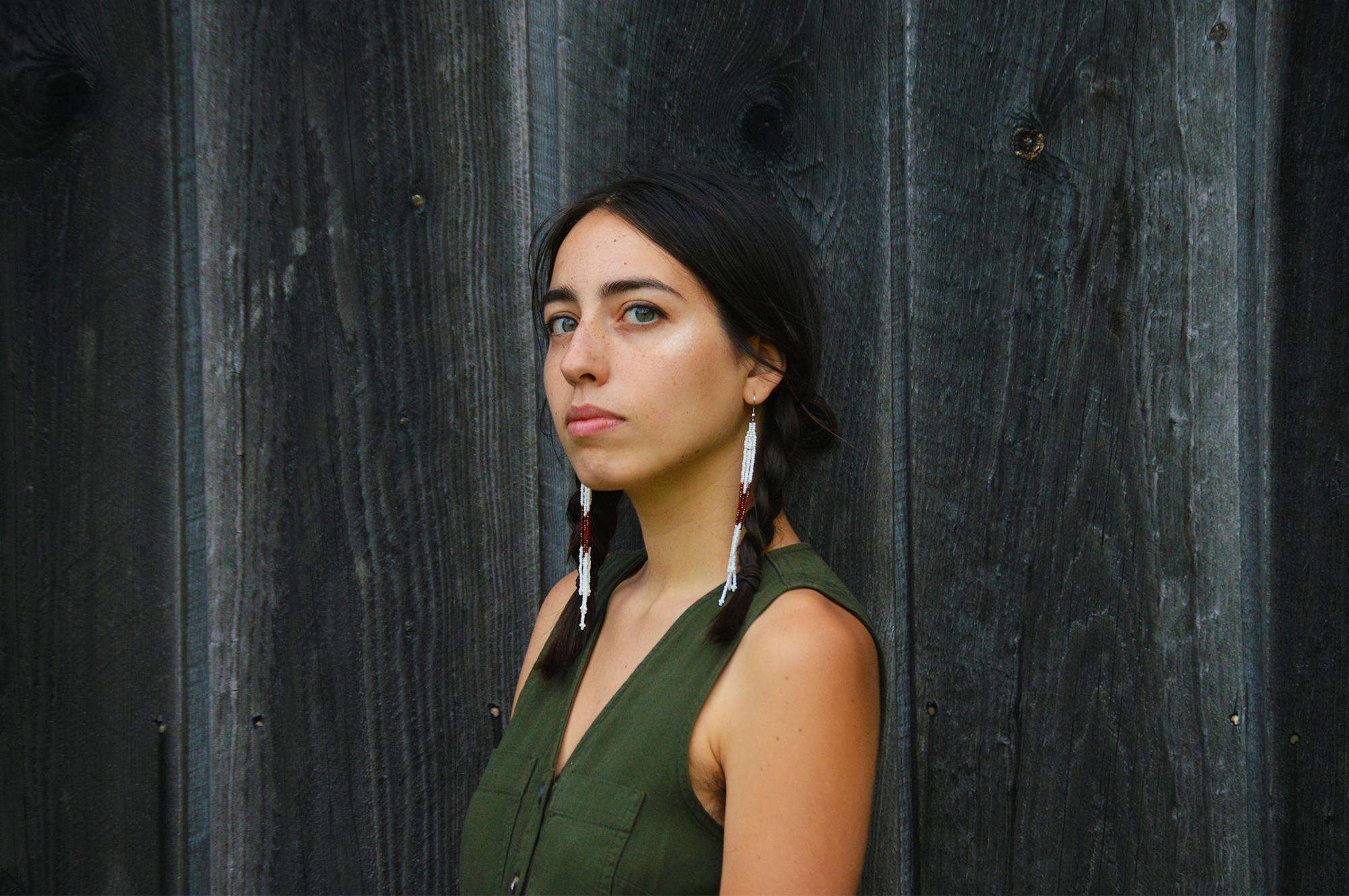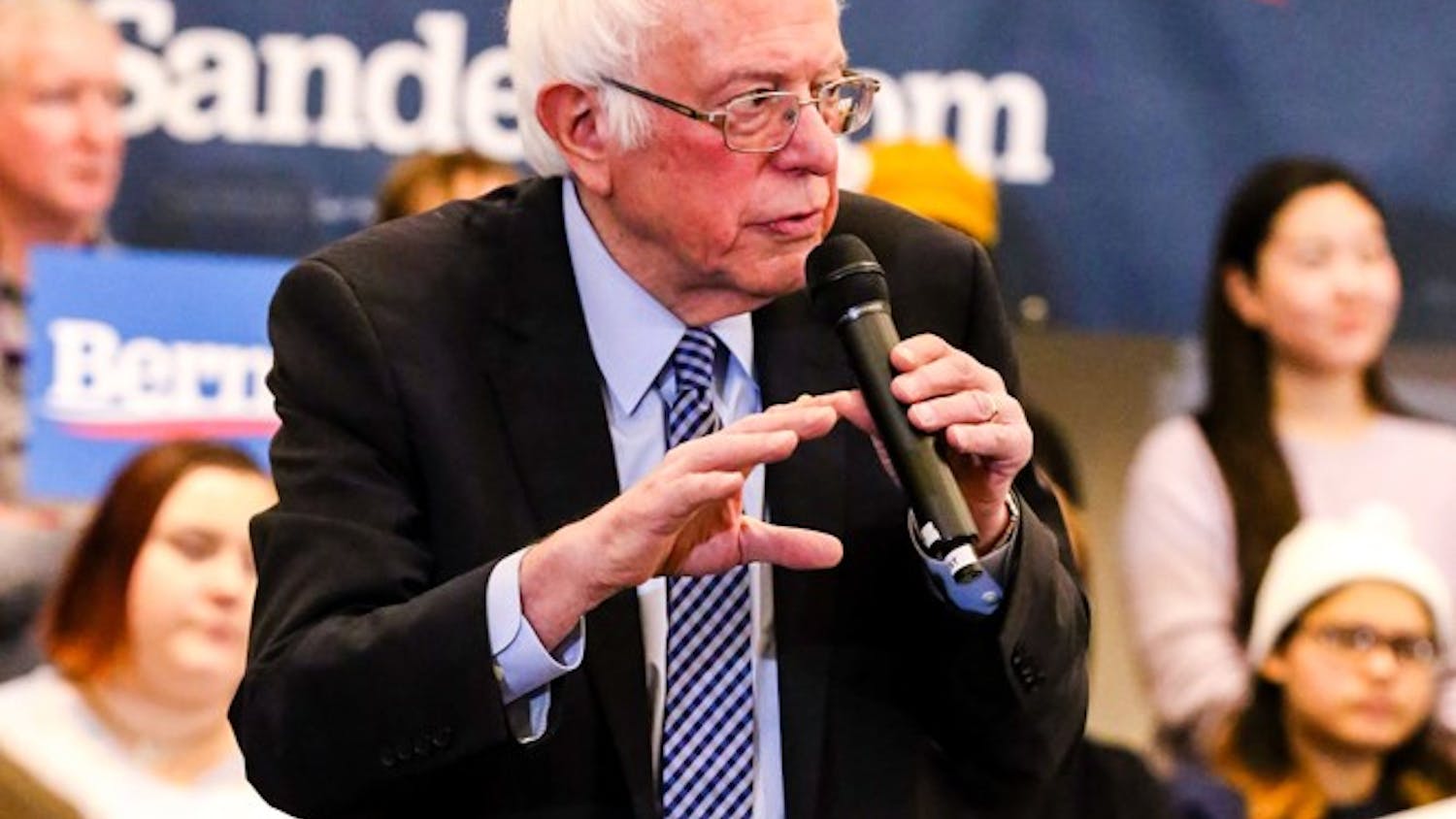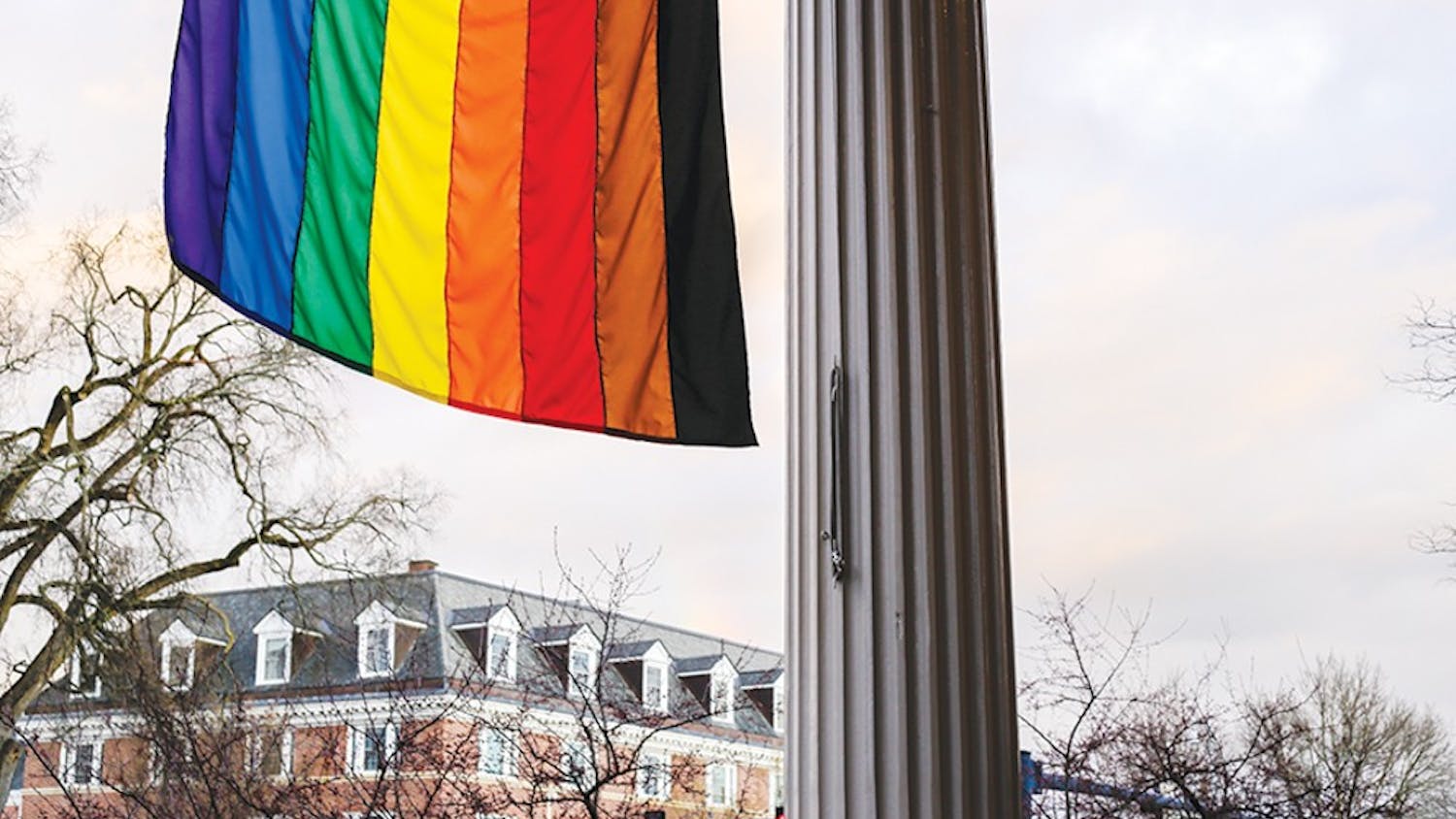Mali Obomsawin ’18 is a musician, writer, activist and citizen of the Abenaki first nation at Odanak. At Dartmouth, Obomsawim majored in comparative literature and government, and she now serves as the bassist for the folk-rock trio Lula Wiles.
On Oct. 12, Obomsawin spoke and performed at an event hosted by the Hopkins Center for the Arts and featured in the Kennedy Center’s Arts Across America series, which highlights “artists whose work is integral to the culture of their region.” During the event, which was part of the Hop’s Indigenous Peoples’ Day programming, Obomsawin performed her own solo songs, which speak to her Native American identity and her thoughts on Indigenous activism, as well as tracks by her group, Lula Wiles.
In an interview with The Dartmouth, Obomsawin discussed activism, Indigenous Peoples’ Day and her experience at the College.
Did you grow up celebrating Indigenous Peoples’ Day, and did that experience inspire you when planning this performance?
MO: We didn't really grow up celebrating Indigenous Peoples’ Day, because it's sort of a recent thing. We are Indigenous and we celebrate that in various ways over time, so the day itself to me is just a day of raising awareness, mostly among white people, that Indigenous folks are still here and trying to condemn the genocide of Christopher Columbus. It's not really a day that does that much for me in terms of celebrating Indigeneity.
What is your opinion of Indigenous Peoples’ Day?
MO: The holiday is good for a lot of reasons. Mostly because it's replacing a holiday that was really bad, and any opportunity that Indigenous people can get to break the silence about our existence and the oppression that we face is a good thing. My unedited opinion of Indigenous Peoples’ Day is that often when marginalized folks are demanding justice, the state or the federal government gives you a holiday and acts like that is enough. It's really not, it just makes people feel like they've done something good. While it is a day that is important for raising awareness about our people, it's not a systemic change, and that is what we need.
Did you feel it was important for you to do this event alone?
MO: Especially for Indigenous Peoples’ Day, it makes sense that I do it as myself. I think if I am going to have a solo career in any way, it will always be tied to activism and advocacy for Indigenous liberation, as well as liberation of all peoples. So I think it's a cool opportunity to get to sort of wear that hat for a little while.
The Hop’s event celebrated immigrant culture as well as Indigenous culture. How do you see these issues intersecting? Should we be grouping these issues together?
MO: I think that, obviously, the idea of immigration intersects in many ways with the conversation about Indigeneity. Particularly with Indigenous peoples from Mexico and Latin America coming to the United States, I have a lot of feelings about their right to be here and affirming their right to be here. I think it's just a really complex conversation that wasn't touched on at all in our live stream.
What are some ways that we can focus on passing the mic to Indigenous people?
MO: One of the big hurdles, I think, for people and allyship is just a complete lack of education, which is a systemic failure of our education systems and our mass media as well. I think that in terms of meaningful change and meaningful allyship, education is one of the most important and immediate things that people can do. When our histories and important cultural figures are erased, that is really hard. But I usually suggest that people learn local histories to the best of their ability as well as learn about mass movements for liberation, whether that's through the civil rights movement, the Black Panther Party, the American Indian Movement or other big moments in the history of the fight for justice for marginalized people. I think that the education system does a particularly poor job talking about those moments because they have an incentive to make America look really good.
What do you think the intersection is between activism and music? How do these media communicate in different ways or enhance each other?
MO: With my music, it's really hard for me to not be making a larger commentary about the world and about where I come from or what’s going on. To me it feels like an incomplete picture if I don't talk about that. And in turn, it also feels like an incomplete picture if I'm writing an article and I don't reinforce it with cultural ethos via music or art. I think that artists and intellectuals should always have that kind of relationship. I also think that revolution is dependent on both artists and intellectuals, so that's sort of where I situate myself.
What have your experiences been as an artist and activist during COVID-19?
MO: I have not done too many live stream events; I've sort of been shying away from it mostly because I don't usually do solo performances, I usually just play as a side woman. But because of the pandemic and the live stream economy we're all in right now, a lot of people have been asking me to do solo performances for the first time or have been expecting that of me, which is funny because it's not something that I ever did in real life necessarily.
The livestream gig economy is really terrible. I hate not having an audience, but new opportunities have come my way and it's been cool to have a platform as a solo artist for talking about issues that I think are important, as well as playing some of my songs, although I do prefer playing with bands and in-person audiences.
What advice would you give to current Dartmouth students given the College’s relationship with Indigenous history?
MO: I think it's important that people within higher education understand the extreme privilege that they have to be there in the first place. It’s also important to remember that the institution does not necessarily represent you or stand for you. I think that's a really big issue in the Ivy League as well as throughout higher education. I think that it’s important for Dartmouth students just to be aware of the space that is left for ignorance to flourish at the school, and to try to be really critical of how and why it is that such cognitive dissonance can be held in one place.
This interview has been edited and condensed for clarity and length.




